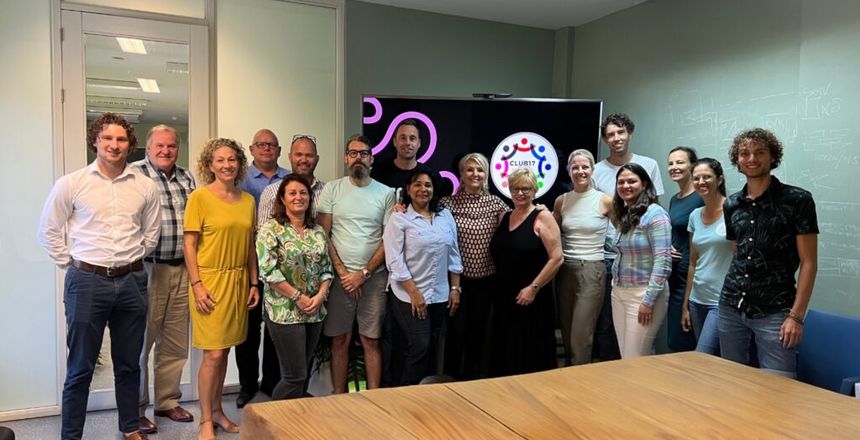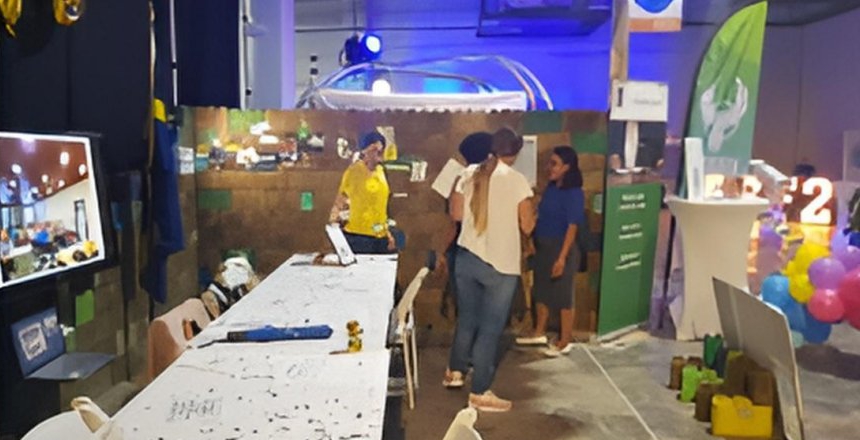Projects Smart WorkPlace Social Improvement
3 min.
On March 21st of this year, one day after International Day of Happiness, the first Caribbean Happiness Conference took place at the Renaissance Wind Creek Curacao Resort.
For this occasion, successful Life and Business Coach Carla Martina decided to combine two very important and topical themes. With ‘Happiness in the Workplace: The New Performance and Productivity Booster’ as the main focus, she managed to put the responsibility of being happy and creating a thriving workplace in the hands of both, the employee and the employer. Together with the guest speakers, making very clear that you can't have one without the other.
“An employer can’t make an employee happy, but he can remove reasons for unhappiness”
Keynote speaker Mo Gawdat is the former chief business officer for Google X and has now dedicated his life to researching happiness as his primary topic. He has written several successful books about the subject and has made it his mission to share his message to one billion people worldwide.
One of his pillars is, that “an employer isn’t responsible for the work of his employee, but he is responsible for the employee”. One way to make sure they can perform the best at their jobs is, to create the right environment. For example, making sure the office has daylight shining in, making sure the desk and chairs can be altered to the right heights for the various employees and making sure sufficient fresh air is circulating.
This is especially on topic for the current situation in Curacao. Caribisch Netwerk has published an article earlier this year, in which they mentioned findings from research that has been executed by Optima Arbodienst. Arthur Nivillac notes that employees in general aren’t taking sick leaves for medical reasons, but because of trouble in their private life, in the workspace or because of conflict.
Creating an open and safe environment for employees to talk about their challenges, professionally and in private, can be part of a solution to a bigger problem. Yithza Davelaar, grief coach local to Curacao, backs this statement. She also took the stage during the conference and expressed her worry about the misconception about happiness in companies based in Curacao. Which is, the general belief that employees are solely responsible for their happiness. According to Davelaar, it almost seems like a taboo to talk about in the workplace.
Productivity and results
Yet, it is a proven fact that happy employees are easier to manage, are more dedicated to their jobs and as a result, get better outcomes for their companies. Ellemieke van Beek, founder of WannaGrow, showed staggering numbers from researches of Forbes, Gallup, Harvard Business Review (HBR) and Shawn Achor.
51% less turnover (Gallup), 66% fewer sick leaves (Forbes) and 125% less burnout (HBR) can be achieved when employees score themselves as happy. Not only that, but also a 31% increase in productivity (Shawn Achor), 37% increase in sales (Shawn Achor) and 44% higher retention (Gallup) can be a result of happiness in the workplace.
To conclude these impressive numbers, HBR has published that 300% more innovation can be achieved when making employee happiness part of the day-to-day focus.
In other words, creating an environment for employees to express perceived worries and problems, also means creating an environment for those same employees to come up with ideas for progress, innovation, development strategies and growth, which in return lead to better results.
But how do you create such an environment and how do you manage employees while implementing and coping with the ongoing trend of distant working? Topics that Future Islands will soon highlight.





